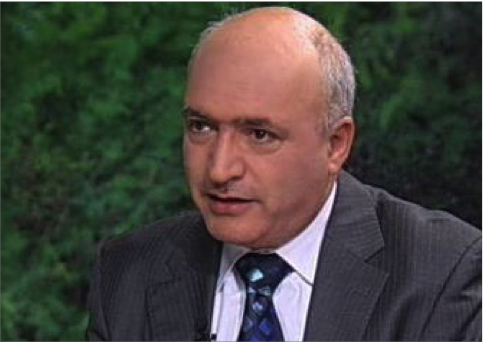The science of politics has so far established dozens of regimes and ruling systems that can maintain the well-being of a certain population in accordance with the circumstances of their country.
Thus, every nation has to select the system of governance that suits the given conditions which influence the state. This process may take a long time as well as much efforts due to the difference among the various segments of a the given population. In lots of cases, the process passes through a civil war.
Lebanon is one of the nations which has witnessed several civil wars over political conflicts and competitions of interests in the small country.
In other words, changing the ruling system in Lebanon may entail dramatic repercussions which may threaten the every existence of the entire nation.
Amid the political deadlock, crowned by the presidential vacuum, and the socioeconomic crisis, some Lebanese parties are proposing federalism as an alternative ruling system.
Federalism is a combined and compound mode of government that combines a general government (the central or “federal” government) with regional governments (provincial, state, cantonal, territorial, or other sub-unit governments) in a single political system, dividing the powers between the two.
Lebanon has been suffering from the sectarian political performance for a long time. The sectarian affiliation has been the basis of the ruling system. Sectarianism has negatively affected the administrative, economic, and social aspects of the lives of the Lebanese people.
If it is decided that sub-unit governments will be formed in Lebanon in order to implement federalism. This would reinforce sectarianism and all its negative effects on Lebanon.
Moreover, the municipal system in Lebanon contributes to the acceptable extent of territorial independence that matches the regional challenges and needs. However, dividing the powers of the central government will lead to the notion of partition.
In this regard, Lebanon is characterized by the demographic diversity with the territorial unit. In every province, counties with different sectarian affiliations exist. So, how can the various segments of the Lebanese people be sorted in a way that keeps every sub-unit government ruling religiously and educationally homogeneous people?
Furthermore, Lebanon is a small country whose public facilities are limited and distributed in a way that disrupts their services if the country is partitioned. The instance of the airport is just one of the cases that turns the issue to be an impossible mission.
In a speech commemorating the seventeenth anniversary of the victory in July 2006, Hezbollah leader Sayyed Hasan Nasrallah, questioned the motives behind creating a tense internal atmosphere and advocating for regime change, federalism, and division.
Sayyed Nasrallah stressed that Hezbollah And Amal Movement are not after a regime change in Lebanon, challenging the opponents to quote any of the Shia duo officials as demanding a ruling system alteration.
Deputy Chief of Hezbollah Executive Council Sheikh Ali Daamoush affirmed that the calls for federalism discourage coexistence and national unity in Lebanon, adding that accusing Hezbollah and Amal Movement of plotting a constitutional amendment is aimed at provoking the Lebanese against them.
Consequently, federalism may be suitable for a large number of nations, but Lebanon cannot adopt this ruling system for the above-mentioned conditions which may cause a civil war. Amending the Taif Constitution is not completely forbidden; however, this must be based on a national consensus.
Source: Al-Manar English Website
Related Articles
- Nasrallah Forcing ‘Israel’ to Make Concessions without a War: Zionist Circles
- Video| Al-Manar Recalls 2006 “Operation Truthful Promise”
- Sayyed Nasrallah Vows Unyielding Resistance Against Ghajar Occupation and Tent Attacks
- Hezbollah’s First Surprises in 2006 July War: “Watch the Israeli Warship Burns”
- Hezbollah Official Denounces EU Parliament Resolution on Syrian Refugees Issue: Mikati Must Meet Assad to Face Conspiracy
- Arrests and Clashes Erupt as IOF Raids Palestinian in Occupied West Bank
- Resistance Fighters Clash with IOF in West Bank
- Sheikh Afif Naboulsi Dies after Long Battle with Illness: Hezbollah Mourns Loss of Islam, Resistance Scholar
- It’s a bird…It’s a plane…It’s the soldier that never dies
- “Israeli” Knesset Passes First Reading of Bibi’s Divisive Plan, Despite Months-Long Protests
- “Israeli” MKs to Vote on Bill Barring Judges from Reviewing “Reasonableness” of Gov’t Decisions
- “Israel” Torn Apart: Gallant Decries Dangerous Reservists’ Steps as A Reward for The Enemy
- Palestinian Prisoner Khaled Al-Sawarka freed after 21 years
- Video| 5-Year-Old Daughter Tries to Hug Father Fettered by Israeli Occupation Court’s Shackles
- Sheikh Qawook: Resumption of Dialogue between Hezbollah, FPM is a Step in the Right Direction
- Israeli Occupation Kills Palestinian, Conducts Raids in West Bank and Al-Quds
- Lebanon Presidential Elections: Noticeable Progress Recorded
- European Parliament Votes for Continued Presence of Syrian Refugees in Lebanon
- US Cluster Bombs Are Now in Ukraine: Pentagon
- Turkey to Speed Up Negotiation Process on Its Accession to EU: Erdogan
Filed under: Uncategorized | Tagged: Amal-Hezbollah duo, Civil War, Federalism and confederalism, Lebanon Corrupt sectarian system, Taif Agreement | Comments Off on Federalism Leads Lebanon to Civil War & Demise









